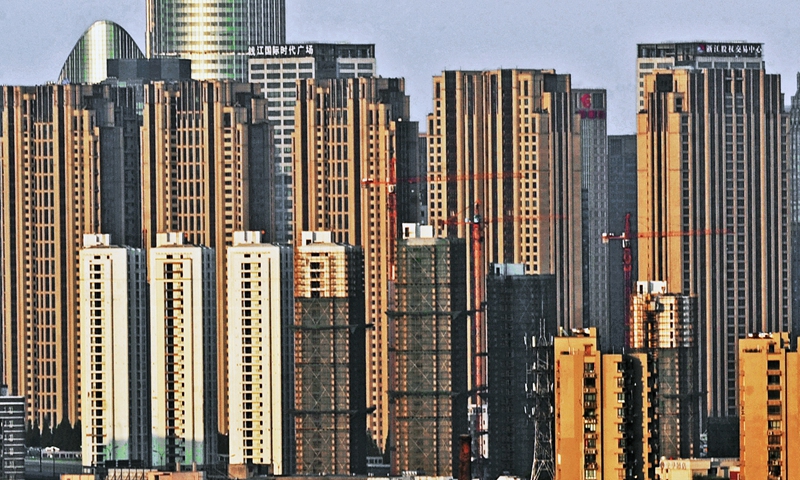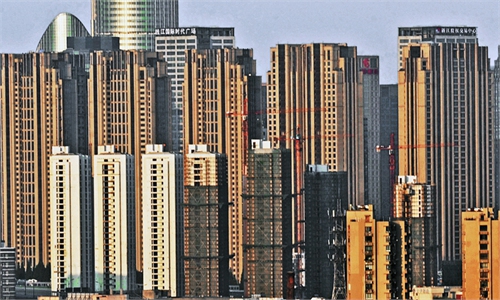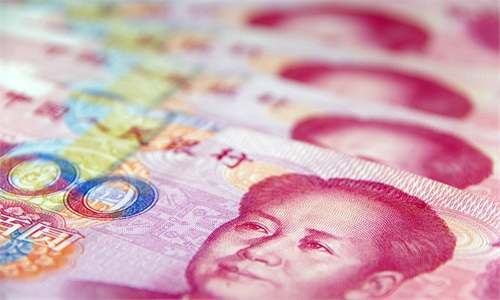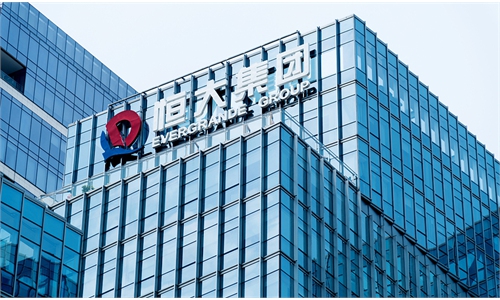China’s property sector could see partial rebound in H2 after turbulent times in 2021

real estate Photo:Xinhua
China's property sector, which relates to a significant portion of the economy, is likely to see a period of stabilization in 2022, after a turbulent 2021 during which many companies and market segments saw their slowest-ever growth or even declines, industry analysts said on Wednesday.
However, a return to the "good old days" is out of the question, according to analysts.
Multiple research institutions have produced annual reports for 2021, a year that witnessed some of the steepest cooling in the once-burgeoning industry, as some of the country's leading developers encountered debt woes.
For instance, the housing market was the subject of 651 regulatory policies in 2021, the highest on record and 33 percent more than in 2020, the Securities Times reported, citing a report by Centaline Property.
Total financing by 100 property companies declined 26 percent to a five-year low of 1.29 trillion yuan ($202.54 billion) in 2021, a report by industry research agency cricchina.com showed, as China tightened credit lines and curbed developers' bond issues.
September saw transactions of secondhand homes fall to the lowest point since records were kept.
However, after the trials and tribulations, some media outlets are hinting at a pick-up.
Transaction volumes of secondhand homes in 50 major cities ended a six-month declining trend in the final quarter of 2021 and showed signs of stabilization, a report on news portal chinanews.com.cn said, citing a report by the Beike Research Institute.
Domestic news portal 21jingji.com.cn also reported on Wednesday that transactions in the property market may pick up after the first quarter of 2022, citing analysts' forecasts. For investment in the property sector to recover, six months' time is needed.
Hui Jianqiang, research director with real estate information provider China Real Estate Appraisal, told the Global Times on Wednesday that although the sector began to warm after some policies were eased in the fourth quarter of 2021, the industry won't simply return to its old days of highly leveraged growth.
Property investment in the first 11 months of 2021 reached 13.73 trillion yuan, growing at 6 percent, slowing down from 7.2 percent during the first 10 months, data from the National Bureau of Statistics revealed in December.
Downward pressure persists, as some cities have been affected by factors including population outflows and difficult economic situations, and the risks of some real estate enterprises that relied on blind, debt-driven expansion may continue to be exposed, analysts said.
But the market is expected to gradually stabilize and may pick up in the second half of 2022.
The annual Central Economic Work Conference, held in Beijing in December, laid out the need to promote the construction of affordable housing and adjust the commercial housing market to better meet buyers' needs.
Yan Yuejin, research director at Shanghai-based E-house China R&D Institute, told the Global Times on Wednesday that the pattern seen in 2021 was one of a quickly cooling housing market that weighed on real estate developers, which faced cash flow shortages. Developers seemed to have run out of ways to lift sales.
"Looking into 2022, continued cooling will continue well into the first half, while a partial warming up can be expected in the second half, when more supportive policies arrive on the ground," Yan said, noting that it depends on whether the loosening of policies results in an increase in actual purchases.
Yan said that 2022 will be a year of continued reforms in the sector, and more policy adjustment are expected, adding that there could be a housing policy rolled out in support of the third-child policy.




